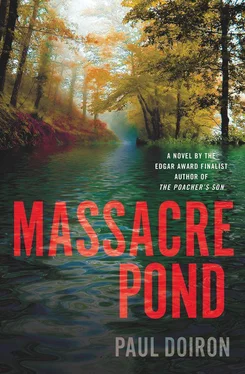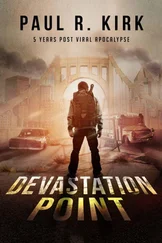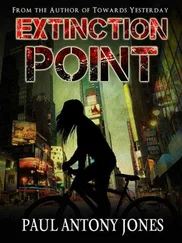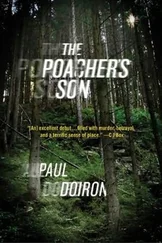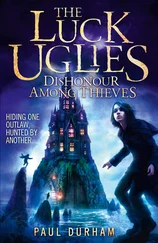Paul Doiron - Massacre Pond
Здесь есть возможность читать онлайн «Paul Doiron - Massacre Pond» весь текст электронной книги совершенно бесплатно (целиком полную версию без сокращений). В некоторых случаях можно слушать аудио, скачать через торрент в формате fb2 и присутствует краткое содержание. Год выпуска: 2013, ISBN: 2013, Издательство: Minotaur Books, Жанр: Криминальный детектив, на английском языке. Описание произведения, (предисловие) а так же отзывы посетителей доступны на портале библиотеки ЛибКат.
- Название:Massacre Pond
- Автор:
- Издательство:Minotaur Books
- Жанр:
- Год:2013
- ISBN:9781250033932
- Рейтинг книги:4 / 5. Голосов: 1
-
Избранное:Добавить в избранное
- Отзывы:
-
Ваша оценка:
- 80
- 1
- 2
- 3
- 4
- 5
Massacre Pond: краткое содержание, описание и аннотация
Предлагаем к чтению аннотацию, описание, краткое содержание или предисловие (зависит от того, что написал сам автор книги «Massacre Pond»). Если вы не нашли необходимую информацию о книге — напишите в комментариях, мы постараемся отыскать её.
Massacre Pond — читать онлайн бесплатно полную книгу (весь текст) целиком
Ниже представлен текст книги, разбитый по страницам. Система сохранения места последней прочитанной страницы, позволяет с удобством читать онлайн бесплатно книгу «Massacre Pond», без необходимости каждый раз заново искать на чём Вы остановились. Поставьте закладку, и сможете в любой момент перейти на страницу, на которой закончили чтение.
Интервал:
Закладка:
Paul Doiron
Massacre Pond
Nature looked sternly upon me on account of the murder of the moose.
— HENRY DAVID THOREAU1
The first time I laid eyes on Billy Cronk, I thought he was the biggest badass in the Maine woods: six-five, braided blond hair, a tangled mess of a beard. He had arms that could have snapped a two-by-four over his knee for kindling. The night I arrested him for hunting on posted property, I kept my hand close to my pistol, wondering if this wild blue-eyed bruiser would be the death of me.
As a game warden, I’d met more than my share of roadhouse brawlers and die-hard deer poachers, and I understood that most violent men are cowards. Billy Cronk was different. He never doubted his physical prowess and had no need to prove himself against lesser men. He accepted the summons I wrote without forcing me to wrestle him into handcuffs. In fact, he thanked me for it, lowering his eyes out of embarrassment. The more I learned about the man, the more he surprised me.
He’d been a rifleman in Iraq and Afghanistan, and one of his duties had been picking up the pieces of friends blown up by roadside bombs. Back home in Maine, working as a hunting and fishing guide, he’d gutted his share of black bears and hoisted them on a pole for smiling hunters to pose with for photographs. He’d seen coyotes disembowel fleeing deer they’d chased onto frozen lakes, leaving bloody paw prints on the ice. Once, while fly-fishing, he’d watched a school of bass gulp down a row of ducklings while the mother beat the water with her wings. Billy Cronk understood that nature was as indifferent to the moral sensibilities of twenty-first-century human beings as humans themselves were.
Our friendship had taken us both by surprise, since I was the game warden who’d gotten him fired from his job at the Call of the Wild Game Ranch. At my urging, in exchange for dropping the illegal-hunting charge, he had informed on his asshole boss for various crimes and misdemeanors, the least egregious of which was letting loose a live skunk in the trailer of the district game warden (me). When his employer told Billy to go to hell, the news hit him hard. Despite all the atrocities he had witnessed, there was a surprising innocence about the man, as if he never expected the worst from anyone, and so found himself on the receiving end of one disappointment after another. It was in his makeup to be continually heartbroken.
Billy had avoided me for the first few months after his termination, but we’d kept running into each other on the same trout streams, and eventually we struck up a conversation that revealed we shared a favorite book, an obscure Siberian adventure called Dersu the Trapper. I had never taken Billy for the literary type. His first take on me was equally unflattering. In his estimation, I had a stick permanently wedged halfway up my ass. But we were the same age-twenty-six-and loved the North Woods in a way few other people seemed to understand.
The last time I’d visited his house, I’d come upon him stripped to the waist, chopping firewood in the backyard. The glittering late-autumn sunlight made his tanned arms and chest look like they’d been cast in bronze. Billy usually wore his long hair in a braid, but he’d let it loose for the afternoon, and my first impression, when I saw him whaling away with an ax on a defenseless hunk of oak, was of a Viking marauder driven into a frenzy by vengeful gods.
Every law officer understands the danger of making quick assumptions, but this truism applied to my new friend in spades. His sheer size and resemblance to the Mighty Thor gave him a dangerous aura, especially when you caught sight of the KA-BAR knife strapped to his thigh. In a crowded roadhouse, Billy could reduce the loudest biker to silence just by fixing him with a pale, cold stare. But I had seen tears in those same eyes while he watched his kids chasing each other like puppies around the picnic table and his soft-hipped wife, Aimee, served us Budweiser tall boys.
“I’m a fortunate man, Mike,” he’d said.
“Yes, you are.”
“Sometimes I forget, though.”
“You’ve got five reminders right there,” I said, indicating his wife and children. The blond kids were all under the age of six, dirty-faced, and confusingly similar in appearance. Billy called them the “Cronklets.”
“I wish I could do better for them,” Billy said in his thick Down East accent. “A man should be able to provide for his family. Something’s wrong with him if he can’t.”
I was between girlfriends myself, and the thought of a family of my own seemed like one of those empty promises doctors offer at the bedsides of dying patients. “There’s nothing wrong with you, Billy.”
My friend smiled, trying to humor me, but I knew he was unable to accept my assurances.
I couldn’t really blame him. I’d grown up poor myself and understood what it was like to feel the constant anxiety of unpaid bills and empty cupboards. Before my mother grew sick of my father’s abuse and alcoholism and filed for divorce, we’d lived a lot like the Cronks-holed up in drafty cabins we couldn’t afford to heat, and wearing secondhand clothing scavenged from boxes in church basements. Just that week, I’d seen Aimee Cronk at the supermarket in Machias paying for her groceries with one of those EBT food-stamp cards, and I suspected that Billy might still occasionally poach some deer for the freezer (he and I had our own don’t ask, don’t tell policy). It had taken him six months to land another job after Joe Brogan fired him.
“How’s work going?” I asked as we stood over the sizzling grill, turning venison hamburgers.
“It’s different.”
I rubbed my newly barbered crew cut. “What do you mean?”
He lowered his voice so Aimee wouldn’t hear. “Yesterday, Ms. Morse made me open a package that came in the mail. She thought it might be a pipe bomb or something. I told her we should dip it in the bathtub first, just to be safe.”
“What was inside?”
“An old book her friend bought at some auction, paintings of birds by that guy Audubon. It got kind of waterlogged. Ms. Morse threatened to deduct the cost from my paycheck. She pretended she was joking, but you can never tell with her.”
I swatted a no-see-um that had alighted behind my ear. “She didn’t recognize her friend’s handwriting on the package?”
“Ms. Morse said it looked ‘suspicious.’”
“I can’t say I blame her for being paranoid.”
Elizabeth “Betty” Morse had built a log mansion on Sixth Machias Lake on a pine-shaded point where a historic sporting camp had stood for more than a century, and now she required a considerable domestic staff to help run the property. I’m not sure what Billy’s official job title was, but he seemed to function as her personal driver, handyman, and forester-his duties dictated by the needs of the day. Increasingly, he also served as her bodyguard.
Betty Morse needed guarding. She was a former hippie who had started a small business selling dried herbs at farmers’ markets. In time, she hired some local women to help produce various types of organic teas, which she peddled to natural-food stores, first in Maine and then around the country. Eventually, she opened a factory somewhere out of state-down south, I think-and began manufacturing herbal health supplements. These pills won the endorsement of Hollywood celebrities, who, in turn, made the brand a hit with a nation of dieting housewives. When EarthMother, Inc., went public, The Wall Street Journal said Betty Morse netted half a billion dollars. She gave away some of the money to animal-rights groups and used another chunk to purchase 100,000 acres of Down East timberland, which she’d promptly declared off-limits to loggers, hunters, all-terrain-vehicle riders, fishermen, and snowmobilers. Her intention, she announced, was to donate the land to the federal government to create a new national park where timber wolves and woodland caribou would once again roam free.
Читать дальшеИнтервал:
Закладка:
Похожие книги на «Massacre Pond»
Представляем Вашему вниманию похожие книги на «Massacre Pond» списком для выбора. Мы отобрали схожую по названию и смыслу литературу в надежде предоставить читателям больше вариантов отыскать новые, интересные, ещё непрочитанные произведения.
Обсуждение, отзывы о книге «Massacre Pond» и просто собственные мнения читателей. Оставьте ваши комментарии, напишите, что Вы думаете о произведении, его смысле или главных героях. Укажите что конкретно понравилось, а что нет, и почему Вы так считаете.
